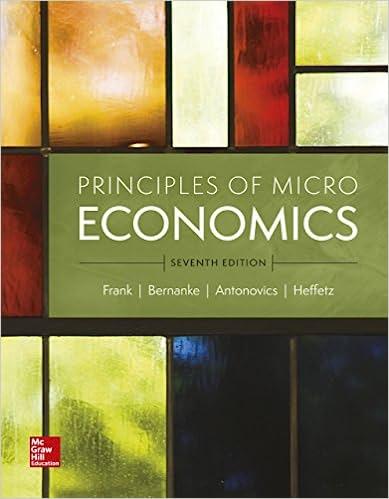Question
A lawyer works as an agent for an injured plaintiff. By working harder, the lawyer can increase the payoff to her plaintiff. Assume there is
A lawyer works as an agent for an injured plaintiff. By working harder, the lawyer can increase the payoff to her plaintiff. Assume there is no randomness; the lawyer can guarantee any payoff of p she wants. But guaranteeing a higher payoff means the lawyer has to work hard, which is costly. Specifically, suppose that if the lawyer wants to guarantee a payoff p then she has to suffer a cost of c(p) =p(squared)/2 . For all of the following questions, you must show your work.
a. Suppose the plaintiff pays the lawyer a fixed fraction q of her payoff p (where 0 q 1). For any p, the lawyer gets total profit of qp c(p) and the plaintiff gets (1q)p . What payoff p will the lawyer choose? What will be the resulting profits of the two parties?
b. Which q is best for the plaintiff?
c. Now suppose the lawyer takes as payment p a, where a p. What will be the lawyer's effort and the two parties' payoffs?
d. Which a is best for the plaintiff, subject to the constraint that the lawyer would never
accept a payment scheme that gives her negative profit?
e. What does the plaintiff prefer: his best q in Problem 4.2 (proportional payment), or his best a in Problem 4.4 (fixed payment)?
Step by Step Solution
There are 3 Steps involved in it
Step: 1

Get Instant Access to Expert-Tailored Solutions
See step-by-step solutions with expert insights and AI powered tools for academic success
Step: 2

Step: 3

Ace Your Homework with AI
Get the answers you need in no time with our AI-driven, step-by-step assistance
Get Started


